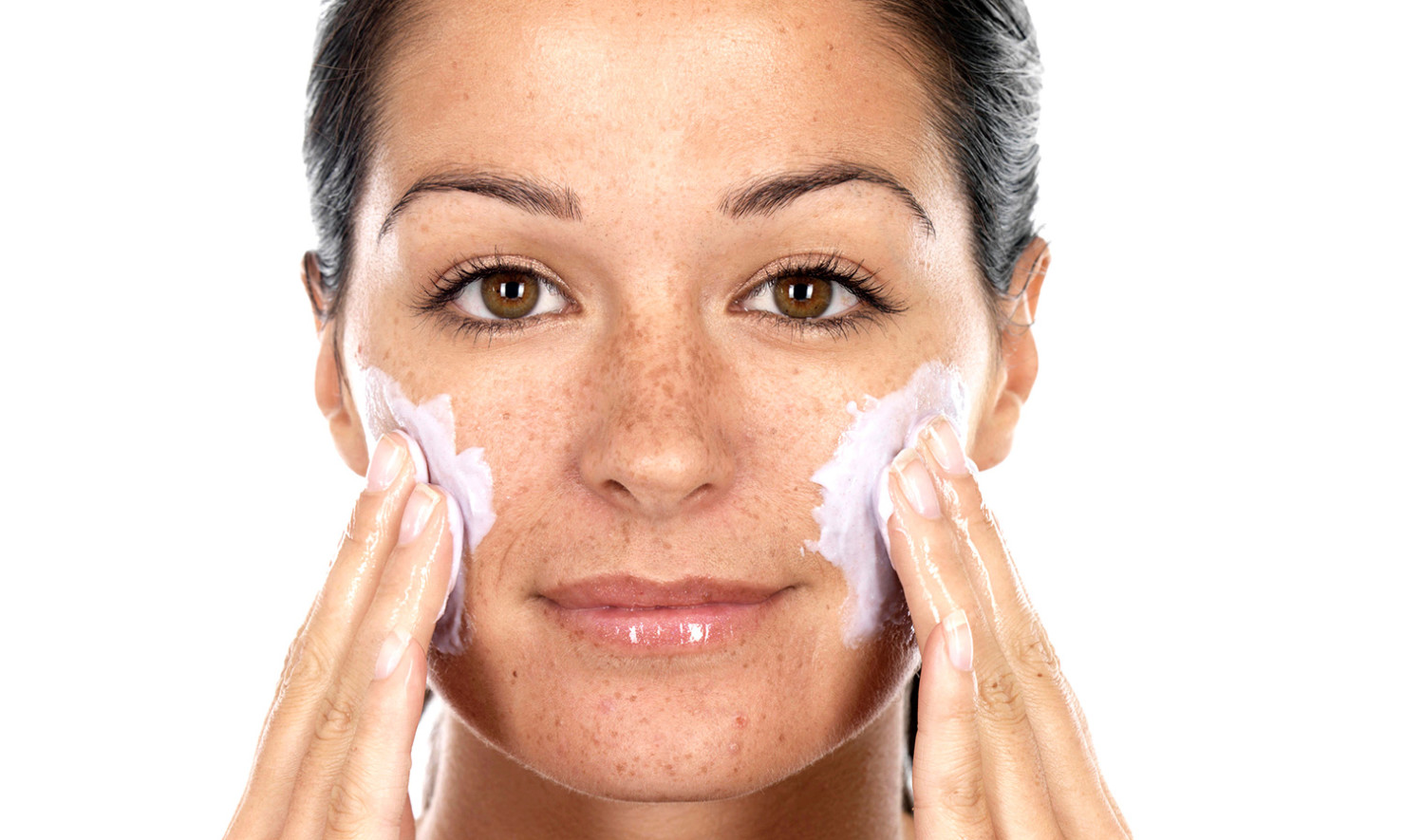When we are young our skin renews itself every 28 days by shedding dead skins, but as we age or due to certain skin conditions, this shedding process can take longer. Using an external exfoliant stimulates new skin cell growth by removing the cells your skin is no longer shedding. It’s important to give our skin a bit of help to remove fine lines, dry skin areas and uneven skin texture. Dead skin cells can play havoc with the application of makeup and can reduce the absorption of important active ingredients in your skincare products.
Read: Do Cosmetic Ingredients penetrate skin
You may or may not realise that there are different types of exfoliants — chemical and physical. In this article we explore the differences between the two. Remember you do not need to use these every day – “less is more” when it comes to achieving healthy glowing skin.
Chemical exfoliant – acid, enzymes and retinoids
These chemical ingredients dissolve the glue-like substance that holds dead skin cells together, which are not removed during cleansing, or naturally shed by younger skin. This type is applied to the skin then rinsed off. You do not need to physically scrub the face – the chemical does the work.
Acid is the strongest available and comes as either Alpha Hydroxy Acids (AHA) and Beta Hydroxy Acids (BHA). There are many types of AHA’s available. The two main types used for exfoliation are Glycolic and Lactic acid. Glycolic acid is great for dry, sun damaged or pigmented skin. Lactic acid is better for sensitive skin types. While these acids are very effective, some chemical peels mean that your skin is more sun-sensitive, and AHAs – especially Glycolic – should only be used at night time. For oily and problematic skin types, the best type to use is a BHA called Salicylic acid.
Read: All about Glycolic Acid Peels.
Enzyme peels offer a gentler solution to an acid exfoliant. The most amazing thing about enzyme peels is that they don’t damage or remove live skin tissue. Studies have found that enzymes diminish scars, age spots, fine lines, discolouration. And may also penetrate the skin to cleanse pores and improve skin tone and texture. Enzyme peels don’t damage living skins cells so they are great for most skin types and conditions. These types of peels come from many sources – plant, animal, or bacterial – and are similar to your skin’s own natural proteases. The main enzyme peels are the natural ingredients like papain from papaya, bromelain from pineapple, pumpkin pulp, or mucor miehei extract from Japaneses mushrooms and the new kid on the block – bacillus ferment – fermented soy base.
Read: All About Enzyme Peels
Retinoids and Retinol: These are derived from Vitamin A and help regulate cell renewal and shedding. They can reduce the clogging of pores which can happens when there is uneven shedding of skin cells. These exfoliants can cause irritation, make your skin sun sensitive and very sensitive. These types of chemical peels must be used with caution and in the evening.
Read: All about Vitamin A – Retinol
Physical exfoliant
Physical (or manual) exfoliation means moving a device or product across your skin to buff off dead skin cells, using physical friction. The physical device is a cleansing brush or face washer. An exfoliation product contains small particles that you massage over the skin and then rinse. Due to the damage to marine wildlife, plastic micro beads have been banned in some countries. International campaigns such as Beat the Microbead, which has been running since 2012, have been helping to build awareness of the monumental issues that can occur from micro beads. Alternatives to these polluting plastic beads are the use of natural ingredients such as seeds, apricot pits, or crushed oyster shells. Zen De Jour skincare uses the biodegradable Jojoba wax micro-spheres, which gently polish the complexion without irritating skin. The added benefit of the Jojoba wax beads is if they start to melt during the exfoliation process they become a moisturiser to the skin. One of my favourite physical exfoliation products is my Kissable Lips exfoliate.
Read: Best Makeup Tips to having Longer Lasting Lipstick
Know the importance of exfoliation, the difference types available and the pros and cons of each type means you can improve your skin and give nature a helping hand. But remember, I practise the “less is more” philosophy and you should too. For more information about exfoliation please click one of my other articles or send me a message.
Read: The benefits of Exfoliation
Read: How Often Should You Exfoliate?
Read: How much is too much exfoliation
♠♣♥♦♠♣♥♦♠♣♥♦♠♣♥♦♠♣♥♦♠♣♥♦♠♣♥♦♠♣♥♦♠♣♥♦♠♣♥♦♠♣♥♦♠♣♥♦♠♣♥♦♠♣♥♦♠♣♥♦
QUESTION ABOUT YOUR SKIN? Make an Appointment Today or send me an email to debra@debraspence.com
PERMISSION TO REPRINT: You may use this article in your print, blog, magazine or electronic newsletter. But in order to do so, you must include the following paragraph “Information courtesy from Debra Spence – Answering your skin problems with Science and Nature. Debra Spence is a Cosmetic Chemist and Skin Specialist who provides skincare and treatment tips, product recommendations and reviews to professionals and patients. www.debraspence.com”
Content Copyright © 2016, Debra Spence








